5 Common Plant Milk Additives And Why You Should Avoid Them

5 Common Plant Milk Additives And Why You Should Avoid Them
Feb 27, 2025 | By JOI team
JOI’s in-house dietitian lists the most common food additives found in plant milks, how they may affect your health, and what you should look for instead.
What are Additives and Why are They in Plant Milk?
It’s plant-based … but is it healthy? As people become more educated about nutrition, they start to question the quality of what they put into their bodies. With so many plant-based products making their way into grocery stores, there is an increasing amount of unwanted ingredients tagging along.
Next time you’re at the store, test it out. Pick a popular plant-based milk brand and turn it around. You will see a long list of ingredients, most of which you will likely not recognize. These are food additives – they are used to manipulate the texture, appearance or taste of foods by acting as thickeners, stabilizers, binders or emulsifiers.
If you’re trying to eat a more wholesome and nutritious diet, unnatural ingredients simply don’t belong. So read on. We’ve looked at several brands of almond milk, oat milk, coconut milk, and soy milk, and put together a list of the most common food additives in plant milks and why you should avoid them.

1. GUMS
You may have stumbled upon the names guar gum, gellan gum, xanthan gum or locust bean gum. These are used in several types of foods – especially plant-based milks – to prevent separation, extend shelf life, or thicken the consistency. Unfortunately, many of these gums have been shown to cause gastrointestinal issues such as gas, bloating, and diarrhea, which may promote inflammation in the gut.
Guar gum, likely the most common of all, was once associated with causing obstructions in the small intestine and esophagus. Xanthan gum, which was shown to have a laxative effect in adults, also appears to be unsafe and contraindicated for infants. What’s more? Many of these gums are derived from common allergens which may be a concern for those with food allergies or sensitivities.
2. CARRAGEENAN
Perhaps the most controversial of all food additives, carrageenan comes with a really bad rap. This substance, which is derived from red seaweed, functions as an emulsifier and a thickener to give foods a creamier texture. Animal studies have linked carrageenan to serious gastrointestinal issues, inflammation and even cancer. In fact, carrageenan has been used to induce tumor growth in rats. Yikes.
3. SEED OILS
As part of their long ingredients list, many dairy alternatives contain added oils such as rapeseed, sunflower, and palm oils. Oils are calorie-dense with a very high fat content and little nutritional value. Although certain oils may present health benefits, namely MCT, avocado and olive oils, most promote inflammation, obesity and chronic disease. Beyond their effect on human health, some oils (namely, palm oil!) also negatively impact the environment. Palm oil is a major driver of deforestation known to destroy the habitat and lives of many endangered species such as orangutans.
4. PHOSPHATES
Disguised under different names – dicalcium phosphate, disodium phosphate, monosodium phosphate, phosphoric acid, to name a few – phosphates are another popular food additive with undesirable health effects. A study suggested consumption of phosphates may lead to organ calcification and kidney complications. The study supports that phosphates in food are hazardous and should be labeled as dangerous to public health, especially to individuals with kidney damage.

5. PRESERVATIVES
To extend shelf life, many plant-based milk brands add preservatives such as potassium sorbate and sodium benzoate. While these additives help prevent spoilage, they come with concerns. Sodium benzoate, for example, can form benzene, a known carcinogen, when combined with ascorbic acid (vitamin C) under certain conditions . Potassium sorbate has been shown to suppress the activity of gut microbiota and may trigger immune responses.
While preservatives extend shelf life, they aren't always necessary—especially when there are fresh, whole-food alternatives available. When choosing a plant-based milk, look for short ingredient lists with recognizable, whole-food components. The fewer additives, the better!
How To Avoid Additives in Plant Milk?
We’re glad you asked. It’s clear that alternatives to dairy milk are becoming increasingly popular. Whether it’s due to lactose intolerance, a dietary preference, environmental reasons or for animal welfare, consumers are stocking up on plant milks. But most brands out there include tons of unnecessary ingredients such as gums, inflammatory seed oils, and added sugars.
Now that you’ve learned the many reasons to avoid food additives, it might be a smart move to ditch the store-bought milk alternatives and allow for minimum-ingredient, wholesome milks to make their way into your pantry. Here at JOI, we pride ourselves on offering products that are either single-ingredient or made with purposeful, simple ingredients. No gums, no lecithins, no seed oils, no BS.
So, make sure you read the ingredients list next time you’re out shopping – unless you’re using JOI. Our almond, hemp and cashew milks are great sources of anti-inflammatory healthy fats, protein, and micronutrients. Our oat milk, which consists of organic ground oats, provides heart-healthy fiber and protein. Our oat creamers are made with the JOIBlend, designed to promote gut health and offer healthy fats. So, are you ready to join the JOI family?






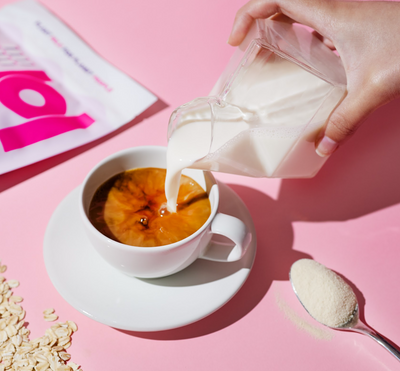
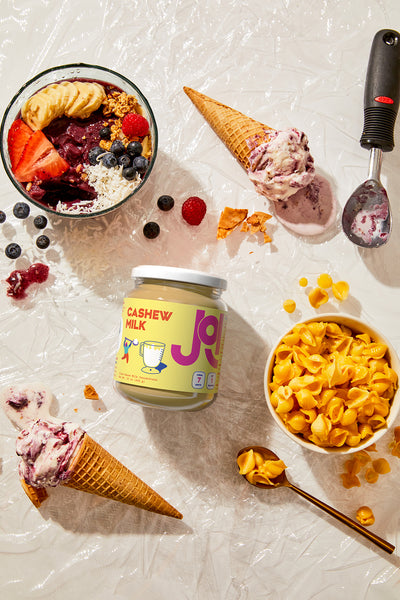
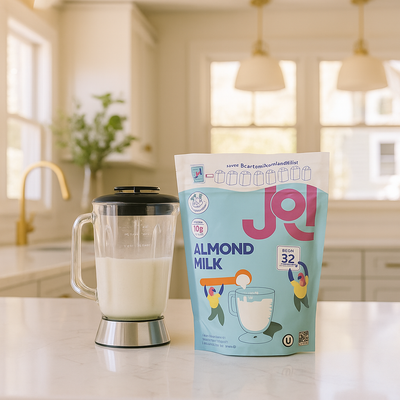
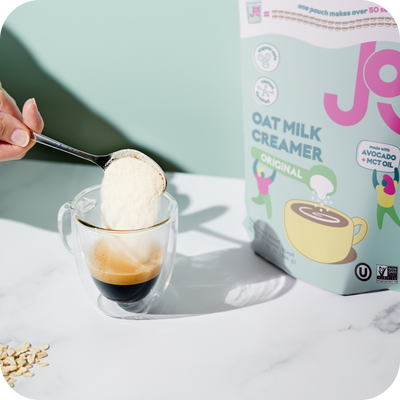
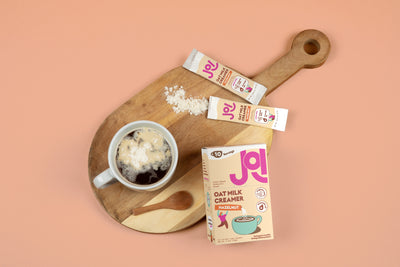
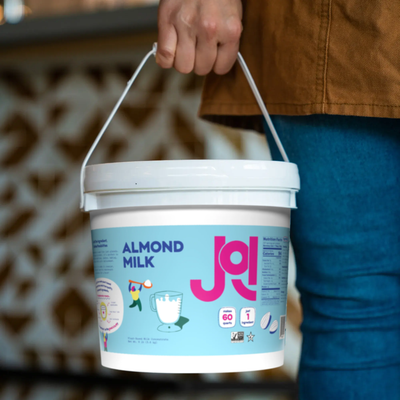
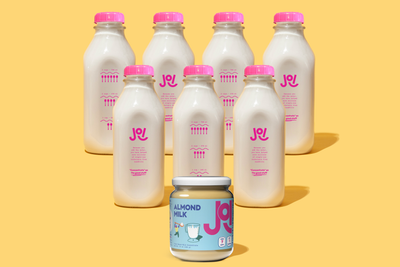
 CHECKOUT
CHECKOUT